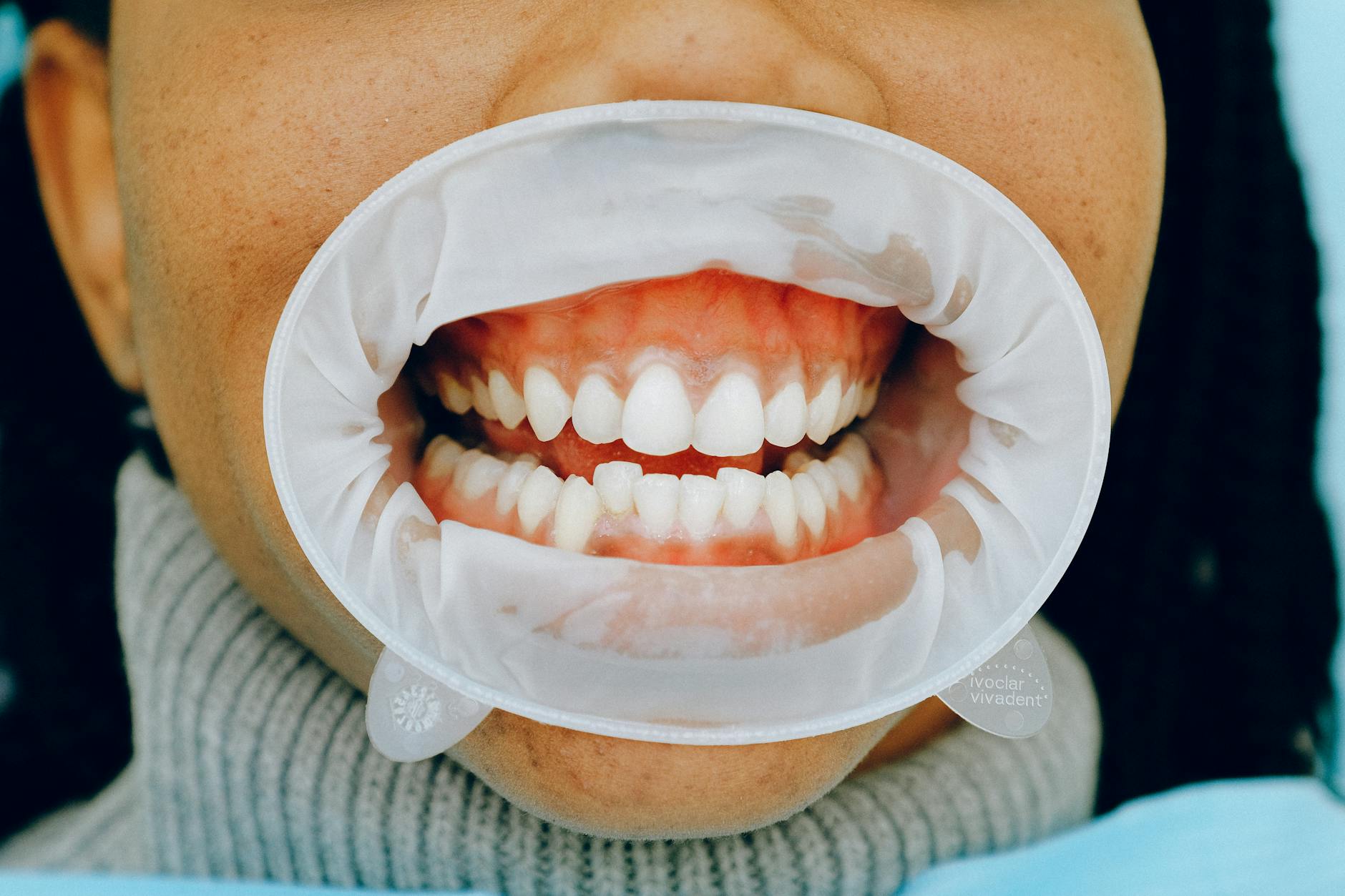
You might not realize the jaw is even involved
Your jaw feels like background.
You chew, speak, yawn.
And it works.
Until it doesn’t.
The change is usually quiet.
You feel tension.
Or hear a soft click.
Sometimes your jaw stops opening fully.
You tell yourself it’s stress.
You think you slept wrong.
But nothing improves.
And that’s when the questions begin.
The pain stays, even after everything else has calmed down
You take painkillers.
You ice the area.
You try warm compresses.
The discomfort fades—then returns.
It gets worse at night.
You wake up sore.
Talking too much makes it worse.
Chewing gum becomes difficult.
The ache spreads to your temple.
Eventually, your ear starts ringing too.
You keep searching for relief.
But the cycle repeats.
There’s a sound you can’t ignore anymore
One day your jaw starts clicking.
Then it clicks every time you open your mouth.
You hope it’ll stop.
It doesn’t.
The sound gets louder.
Then your jaw shifts slightly when you chew.
Then it locks.
Once open.
Then once closed.
You feel it slip out of place.
And that’s when it stops being background.
The alignment of your bite feels like it changed
Your teeth used to close comfortably.
Now they meet awkwardly.
One side touches first.
The other floats.
You feel yourself favoring one side.
Food sits unevenly in your mouth.
Chewing takes longer.
You hear more crunch on one side than the other.
It feels minor at first.
But it adds up.
And your jaw keeps adjusting.
Until it gets tired of adjusting.
You didn’t notice the swelling until someone else did
One side looks different.
Fuller.
Or softer.
Your mirror doesn’t tell the whole truth.
You assume it’s nothing.
But then someone asks if your face is swollen.
And you realize they’re right.
You compare both sides.
It’s not just puffiness.
Something feels deeper.
Like the bone underneath isn’t the same anymore.
Pain starts pulling into your ear and neck
You think it’s an ear infection.
Or your pillow.
But it doesn’t go away.
You stop sleeping on one side.
It feels tight near your jawline.
Then stiff along your neck.
Some days your head aches.
Others, your shoulder tenses.
Everything feels connected.
Because it is.
Muscle, bone, joint—all tied to the same hinge.
You’ve tried everything else and nothing really worked
You wore the night guard.
You took the muscle relaxants.
You stopped chewing gum.
You switched to soft foods.
You tried physical therapy.
Yoga.
Acupuncture.
Massage.
You rested.
But the pain didn’t leave.
It just adapted.
Now it waits.
Quiet.
Ready to flare up again.
And it always does.
Your jaw pops out of place when you yawn
It’s sudden.
Startling.
Your jaw opens wide—then doesn’t close right.
You panic.
You hold it still.
You guide it back in.
That becomes your new habit.
You avoid yawning too big.
You stop singing loudly.
You even change how you laugh.
All because one joint won’t stay in place.
The injury seemed small, but the pain grew over time
Maybe you fell.
Maybe you were hit during sports.
Maybe it was a car accident.
It wasn’t dramatic.
You didn’t break anything.
But your jaw hasn’t felt the same since.
You feel it when you chew.
When you speak for too long.
Or when the weather changes.
You ignore it for months.
But the ache keeps building.
Your jaw locks in place without warning
You try to open wide,
but something stops you.
A sharp catch.
It’s not just muscle.
It’s the joint itself.
You hold your chin gently.
Try to ease it open.
It gives in slowly.
Then a sudden release.
You feel embarrassed.
But also worried.
Because now it’s happening more often.
And you’re not sure why.
You’ve started chewing differently without realizing it
You always ate fast.
Now you pause mid-bite.
You switch sides.
You chew slower.
You avoid certain textures.
Crunchy.
Chewy.
Dense.
Meals feel like effort.
You finish half your plate.
Not because you’re full—
but because you’re tired.
Your jaw can’t keep up.
Headaches keep showing up and no one can explain them
You’ve ruled out your eyes.
Your sinuses.
Your hormones.
You’ve changed your pillow three times.
Still, the ache returns.
Temples, forehead, jawline.
Sometimes one side.
Sometimes both.
A tightness, not a throb.
It builds by noon.
And by evening, it’s hard to speak.
The pain starts at your face.
And stays there.
You avoid opening your mouth fully now
Brushing is harder.
Flossing takes longer.
You move your jaw less during conversations.
You yawn carefully.
Laugh more quietly.
Eat smaller bites.
People don’t notice.
But you do.
Because you’re moving differently.
You’re adjusting to pain.
And it’s changing how you live.
Even in small ways.
Your jaw doesn’t match your face anymore
Photos start to look off.
Your smile shifts sideways.
Your chin angles differently.
You look tired, even when you’re not.
You see the asymmetry.
You wonder if others see it too.
It’s subtle.
But it’s there.
You can’t unsee it.
And now it bothers you.
Because it didn’t used to.
Breathing feels different, especially at night
You wake up with a dry mouth.
Sometimes with your jaw clenched.
You grind without knowing.
Your partner hears it.
You snore more often.
Some nights, you stop breathing briefly.
Your airway narrows when you sleep.
And your jaw position plays a role.
You never thought of surgery.
But now it’s part of the conversation.
You feel like something’s shifted inside—but you can’t prove it
There’s no clear symptom.
Just a knowing.
Your jaw feels off.
The way it moves.
The way it rests.
Something’s different.
You’ve been living with it for a while.
And now, you’re done guessing.
You want answers.
Even if they confirm what you already suspect.
